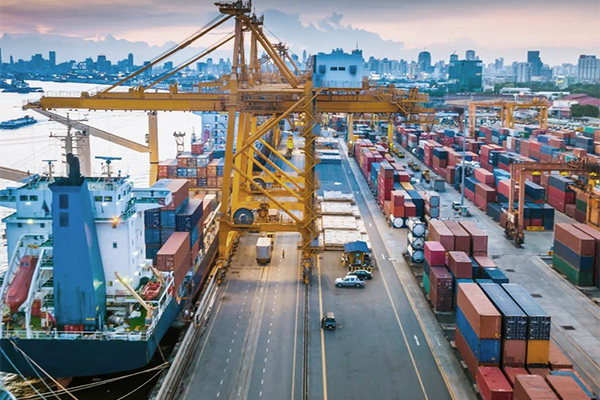As the G-20 Summit gets underway this week in Buenos Aires, Argentina, trade analysts will keep a wary eye on proceedings between China's President Xi Jinping and US. President Donald Trump.
According to the IHS Markit U.S. PMI (Purchasing Managers' Index) special tariff survey released today, the data indicate that U.S .manufacturers expect tariffs to have a widespread upward impact on prices over the next two years.
“More encouragingly, positive effects are reported in terms of boosting domestic employment and, albeit to a far lesser extent, bringing-forward planned investment spending,” say analysts.
The proportion of total output produced abroad is meanwhile expected to rise very marginally.
The survey data were collected in the latter half of October and reflect reported expectations from a representative panel of just over 800 US manufacturing companies. The questions asked companies to report on the expected impact of tariffs and other trade-war related factors on their operations at home and abroad (either current or planned) over the next two years.
Just one-in-ten (11%) manufacturers report that tariffs and other trade war factors will lead them to reduce the proportion of their total output which is produced abroad, relocating production back to the US. Slightly more (12%) report that such measures will encourage the shift of more production abroad.
The expected transfer of production abroad is most pronounced among larger companies. By sector, the shift is most commonly seen in the electronics & electrical, transport goods (which includes autos) and food & drink sectors. Only firms in the mechanical engineering and basic metal goods sectors are on balance expecting to re-shore more production back to the U.S. as a result of the trade war measures.
 A bigger impact is seen in terms of employment. Twice as many companies (15%) report that they will increase their domestic payroll numbers over the next two years as a consequence of tariffs and trade war measures than will cut their US-based workforce numbers (7%).
A bigger impact is seen in terms of employment. Twice as many companies (15%) report that they will increase their domestic payroll numbers over the next two years as a consequence of tariffs and trade war measures than will cut their US-based workforce numbers (7%).
By sector, the largest domestic job gains are anticipated in the mechanical engineering, timber & paper, chemicals & plastics and transport goods sectors.
Trade wars and tariffs are meanwhile expected to result in companies bringing forward planned investment on balance. However, with only 12% of manufacturers expecting to pull-forward their planned investment over the next two years compared to 9% expecting to postpone or cancel existing investment plans, the net improvement signalled is only very modest.
The expected increase in investment is especially slight among smaller firms. By sector, the expected net boost to investment is confined to the mechanical engineering, basic metals, timber & paper, food & drink and electronic & electrical sectors. Only the chemicals & plastics sector report an expected net drop in investment spending.
While the impact of tariffs on the choice of production location and plans for both domestic employment and investment is muted, a more widespread impact is seen in relation to prices.
Some 44% of manufacturers expect tariffs and trade wars to lead to higher domestic prices for their goods in the US over the next two years. Only 3% expect selling prices to fall. Although companies of all sizes expect to see widespread domestic price hikes, the biggest impact is anticipated among larger firms.
By sector, the biggest impact on prices is anticipated in the basic metal goods sector, followed by timber & paper and then transport equipment.
As noted in SCMR recently, IHS Markit economists say that while a global recession is probably still a year or two away, “there are storm clouds on the horizon,” which are starting to look more than a little threatening.”
SC
MR


Latest Supply Chain News
Latest Podcast

 Explore
Explore
Business Management News
- 2024 Warehouse/DC Operations Survey: Technology adoption on the rise
- Benchmarking the complexity of ESG reporting
- Looking back at NextGen 2024
- The Corporate Sustainability Due Diligence Directive
- How to make your CFO a supply chain superfan
- Manufacturing again contracts in October, reports ISM
- More Business Management
Latest Business Management Resources

Subscribe

Supply Chain Management Review delivers the best industry content.

Editors’ Picks





